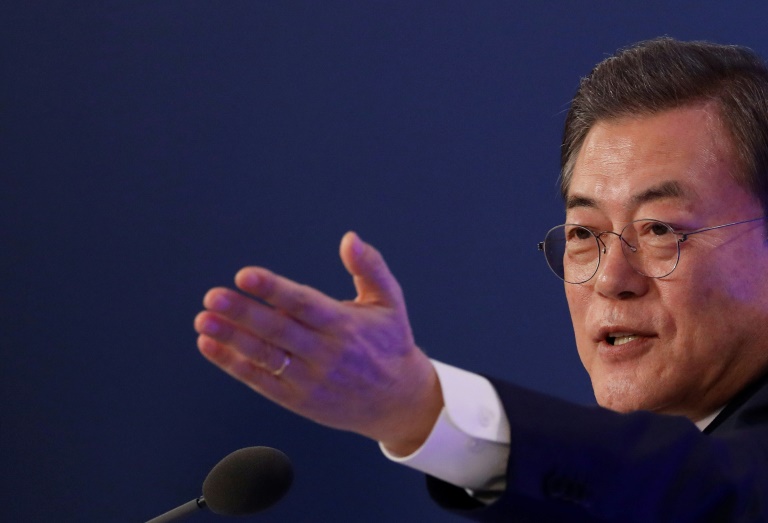South Korea’s economy expanded at its slowest pace for a decade last year, hampered by prolonged trade tensions between the US and China and the sluggish semiconductor market, the central bank said Wednesday.
The world’s 12th-largest economy grew 2.0 percent in 2019, down from 2.7 percent the previous year and the worst performance since 2009 in the wake of the global financial crisis.
Slowing growth presents a challenge for the South, which enjoyed a decades-long boom known as the “Miracle on the Han” but where a highly educated youth now struggles to find well-paid jobs and frustration is mounting over inequality.
President Moon Jae-in has been criticised for a controversial economic policy featuring public spending increases and the concept of “income-led growth”, which has seen the minimum wage rise more than 30 percent in three years. Opponents say it hurts those it is intended to help by raising employment costs.
The trade-dependent economy slowed “due to factors such as a decrease in semiconductor prices”, the Bank of Korea said in a statement.
Read Also: As Trump’s Impeachment Progresses
“While the growth of government consumption expanded, construction and facilities investment contracted as private consumption expenditure and export growth slowed,” it said.
Under pressure from the China-US trade row, outbound shipments grew 1.5 percent, compared with 3.5 percent a year earlier and the smallest expansion since 2015. Imports fell 0.6 percent.
Growth in the fourth quarter was higher at 2.2 percent year-on-year, the BOK said, boosted by government spending to offset weaker private consumption growth, which rose by 1.9 percent last year, its slowest in six years.
Moon’s administration is set to raise public spending 9.1 percent this year and spend 30 percent of its infrastructure budget in the first quarter, ahead of parliamentary elections scheduled for April.
AFP

